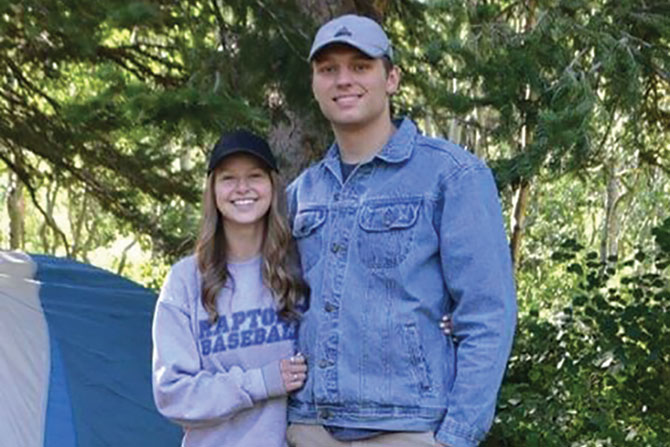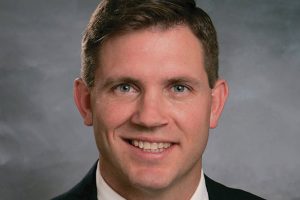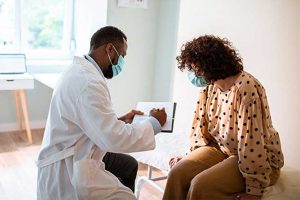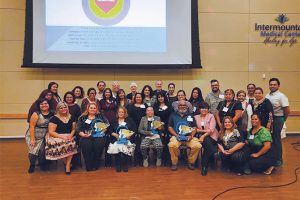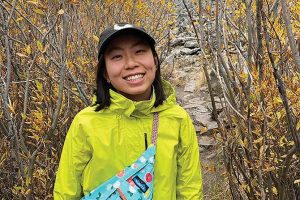By UAFP
It All Started With Hay Fever (From Actual Hay)
Dr. Spencer Nielson grew up in a small town, Leamington, Utah, which is located halfway between Nephi and Delta. Spencer grew up on and worked on an alfalfa farm. He spent a great deal of time cutting and bailing hay, and he also spent as much time as he possibly could in the river that ran through the town. Spencer’s interest in medicine developed early in life through firsthand experience as a frequent patient. As a rural kid working on a farm, Spencer suffered from severe allergies. He recalls one occasion when he went to see a cousin’s horse, and the interaction caused his face to swell up completely. As a result of those allergies and finding treatment that would keep them under control, he developed a good relationship with doctors from Delta. And he had plenty of time to get to know those doctors: he needed allergy shots up to three times a week through elementary school and even into his early teen years.
“Family medicine is the only kind of medicine I was ever really exposed to,” Spencer says. “I saw the same doctor for almost everything. He saw me for my pediatric visits and treated me for any kind of emergency. When I was little and naïve, I didn’t think there was any other kind of doctor!”
As a high school student in Delta, Spencer was able to shadow a family physician, Dr. Shamo, who took over for Spencer’s childhood family doctor after he retired. Spencer loved the experience and observed his first operating procedures and first deliveries through Dr. Shamo. Following high school, Spencer attended Southern Utah University (SUU) in Cedar City, Utah. Spencer quickly got involved in Rural Health Scholars, a program at SUU that encourages students from rural communities to go into medicine and serve in a rural community once they become a doctor. While Spencer worked toward his bachelor’s in chemistry, he also took a medical trip through Rural Health Scholars to the Dominican Republic and helped underserved patients there. Spencer gained even more experience with underserved patients closer to home when he worked with a clinic in Beaver, Utah, where students worked with a P.A. as they treated patients one day a week. All of this previous experience served him well as he moved on to medical school at the University of Utah.
Choosing the Family Medicine Specialty
As Spencer went into medical school, intending to return to his home community to practice, family medicine seemed like the most logical fit from the very beginning. During med school, Spencer also enjoyed many surgical specialties such as O.B., surgery and anesthesiology. Still, he always felt drawn to family medicine, where he could enjoy the full spectrum of medicine. Spencer knew that returning to serve in a rural community as a family physician meant that he would always be able to perform some aspects of those other areas of medicine that he enjoyed. While in med school, he was involved with the Utah Rural Outreach Program (UROP). He had the opportunity to travel throughout rural Utah to do presentations for high school students. His goal was to inspire students to go into medicine and ultimately return to their home communities and fill the need for physicians there.
Choosing McKay Dee Family Medicine Residency
Spencer always had his eye on McKay Dee in Ogden, Utah, for his residency because both of his mentors in Delta completed their residencies at McKay Dee. Spencer says that McKay Dee has historically been remarkably adept at preparing doctors for a rural medicine practice by giving them a plethora of different experiences. The residents at McKay Dee have a comprehensive training program. Spencer says not all training programs give you the breadth of expertise that McKay Dee has, so his work there has prepared him well for a career in rural medicine.
When asked about other residency programs he may have considered, he says, “While there may have been some benefits of having experiences outside of Utah, staying in Utah has been a fantastic experience.” Spencer is currently working with Midtown Community Health Center in Ogden, Utah. He is gaining invaluable experiences working with physicians such as Dr. Kurt Rifleman, and he is also learning to speak Spanish while working there. Spencer says that while Delta does not currently have many Spanish-speaking providers, there is a great need in the community for them. Being able to speak Spanish will be incredibly useful in his practice.
Preserving Rural Life
One of the most important components of preserving people’s ability to live in rural communities is to provide comprehensive medical care where they live. “A family doctor in the community can be such an integral part of the community and build trust with patients in a way doctors in larger communities may not experience,” according to Spencer. And with the increased prevalence of telemedicine due to the pandemic, rural physicians and patients will have access to more specialized care without leaving their hometown. Spencer says, “In a rural community, you see video advances helping to keep some patients in smaller, rural hospitals as you can consult with specialists without the patient having to travel.” He also sees telemedicine’s advantage for a mental health visit with a patient, particularly if that patient has considerable anxiety about coming to the appointment in person. While telemedicine also has its limitations for things that need to be seen to assess, it has the potential to continue to benefit rural patients in many ways.
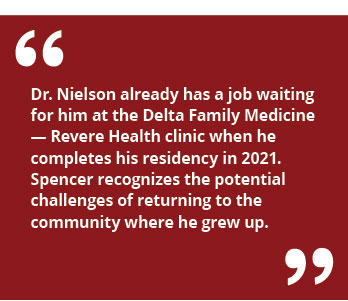
Turns Out You Can Go Home Again
Dr. Nielson already has a job waiting for him at the Delta Family Medicine — Revere Health clinic when he completes his residency in 2021. Spencer recognizes the potential challenges of returning to the community where he grew up. He will be treating both family and friends who knew him from childhood. But he knows his background will help him; he already has a relationship with this community, and he will have the trust of the people he treats. He will also return with the confidence of the training he received as a family physician that has prepared him for the unique challenges of practicing medicine in a rural community. As a family physician, he will be able to cover clinic, handle some emergency medicine, deliver on the O.B. floor, and practice inpatient medicine as well.
Spencer will be returning to Delta with his wife, whom he met while attending school in Cedar City. She grew up in Ogden (which also was a factor in choosing a residency in Ogden) and understands that moving to a smaller community like Delta will be a bit of a culture shock. But she has had time to get used to the idea, and she is excited for the next leg of their journey together as a couple.
UAFP
This story appears in Issue 2 2020 of the UAFP Journal.

